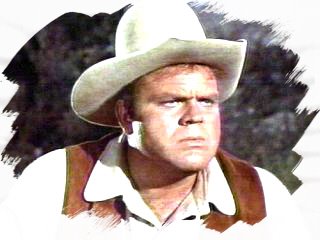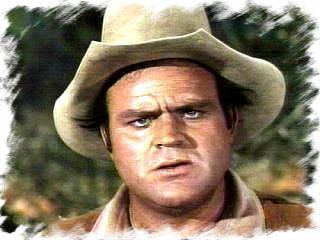

The biggest blockbuster this year isn't set in space, nor is it an action packed adventure, well, there's action, so to say, but not the kind of action you'd expect from a cowboy movie.
Who would've thought that a movie set on the frontier would garner this much attention? Not me.
Before I was born the most popular movies and TV shows were set in the wild, wild west. This was back when men were men, real men; we used a knife to shave with and cold water - no shaving cream. Everybody carried two guns and a knife and chewed tobacky. You had to be a rootin' tootin', gun-shootin' dude back then. Cowboys were real American heroes, they were the shadow of the American silhouette. Men with names like John Wayne, Matt Dillon (the marshall not the actor), Josey Wales, Black Bart and Jessie James were the pure definitions of white male masculinity. Before black men were proud to be black, we wanted to be outlaws or lawmen like Marshall Wyatt Earp.
The other cool things about cowboys were that they always had cool songs to sing while riding on their horses, "Happy Trails" and "My Rifle, My Pony and Me..." damn makes you misty-eyed doesn't it?
When Star Trek was being marketed to the studios in 1965, the producers of the show pitched it as a 'cowboy movie set in space'. Back then, only geeks were into science fiction, that is one of the reasons that there are phaser and fist fights; most of the television watching audience was into westerns and you can't have a western without a good bar room brawl and a gun fight, now can you?
One of the most beloved characters of the old western TV shows was a guy named Hoss Cartwright. He was a big lovable, gentle guy with a 10 gallon hat (I think it was a 10 gallon hat, what do I know, I'm from New York and California) a single gun and ham-sized fists. He represented the American silhouette by being strong and fearless, yet, fair and decent. He was as American as apple pie.
The cowboy went out of 'vogue' so to say once spies, sci-fi and karate flicks came in. Now the cowboy is back, and he ain't nothing like Hoss Cartwright or Nick Barkley. A movie like "Brokeback" raises many questions about what those guys could've been doing out there in the dark in the middle of the night on the 'range' all that time. Two dudes alone 'together' by the camp fire...yuck...but anyway.
'Brokeback' opens the doors to different perspectives of sexuality and friendship. This movie could not have been made in 1961. I would've paid good money to be a fly on the wall, if some exec producer would've walked in Louie B Mayer's office and said: 'Hey, how about a cowboy flick about two guys who are friends who are conflicted over their feelings for each other?" Mayer would've said: "What kind of conflicted feelings?" The exec would've said, "Well, you know, romantic ones..."
"BOOM" was all you would've heard as that producer was being thrown out of that office.
A story about two cowboys having "feelings for each other" and the consequences of their relationship make you miss Hoss Cartwright.
